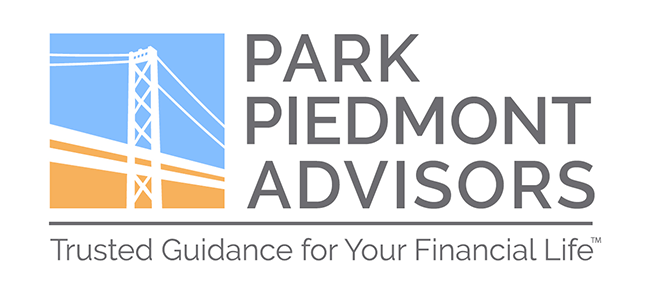We’ve reached another Thanksgiving. A national moment for giving thanks and feeling grateful.
In this installment of Life with Money, we’d like to home in on gratitude. Before we discuss it, we would like first to express it.
First, we want to say: we’re grateful for you, our clients. We’re grateful for the depth and length of our relationships with you. Likewise, we’re grateful for the many ways our work enables us to learn from you, and about you, and to provide you and your loved ones with guidance, support, and care. This is meaningful work for all of us at Park Piedmont, and we thank you for giving us the opportunity.
Second: we’re grateful for our Park Piedmont team. We are fortunate to have outstanding individuals as colleagues. As you may well have observed from your interactions with them, the members of our team are thoughtful, collaborative and hard-working – and, even though we all work remotely, the group remains close-knit.
The Anglican priest and New York Times columnist Tish Harrison-Warren recounts a game her then 11-year-old daughter concocted. It was called “the beautiful game,” and the rules were simple: they’d walk around their neighborhood, pointing out all the beautiful things they saw. For Harrison-Warren, the game helped her “see how much goodness [she] regularly overlooks.”
One interesting thing about gratitude: it actually feels good to be grateful. There’s a great deal of research science that explains why.

Gratitude does indeed make us feel good. Expressing gratitude generates positive emotions – among them, happiness, pleasure and contentment. “When we express gratitude and receive the same, our brain releases dopamine and serotonin, the two crucial neurotransmitters responsible for our emotions, and they make us feel ‘good’. They enhance our mood immediately, making us feel happy from the inside.”
Gratitude improves our relationships. It’s a pro-social set of behaviors that bolsters feelings of connection and closeness. On our weekly team Zoom calls, we always open our discussion by having each person express something they feel grateful for from the previous week. Maybe it’s a call with one of our clients. Maybe it’s the help they received from a colleague. Maybe it’s both. Regardless, the practice is an important way we stay connected and appreciative.
Gratitude makes us healthier. It is “positively correlated to more vitality, energy, and enthusiasm” … “Feeling grateful and appreciating others when they do something good for us triggers the ‘good’ hormones and regulates effective functioning of the immune system. Scientists have suggested that by activating the reward center of the brain, gratitude exchange alters the way we see the world and ourselves.”
Gratitude re-focuses us on what we have, not what we lack. “Psychologists Shai Davidai and Thomas Gilovich, in one of their papers called the ‘Headwinds/Tailwinds Asymmetry: An Availability Bias in Assessments of Barriers and Blessings,’ mentioned that we tend to focus more on the obstacles and difficulties of life because they demand some action. We have to fight and overcome them to get back the normal flow of life. On the flip-side, we forget to attend to the better things in life because they are ‘already there’ and we don’t have to do anything to make them stay with us. Practicing gratitude, according to Gilovich, is the best way to remind ourselves of the things that give us the courage to move on in life.”
Interested in incorporating more expressions of gratitude in your own day-to-day? Here are some well-researched ways to do so:
- Gratitude exercises: Try a thoughtful thank-you note. “Dr. Amit Kumar revealed an interesting fact in his recent research on gratitude exercises (Kumar & Epley, 2018). In the study, participants were asked to leave notes to people who meant a lot in their lives – for example, teachers, spouse, or friends. And these notes were not small papers saying ‘thank you’. They had to be detailed and more in-depth. Surprisingly, participants could finish writing lengthy gratitude notes in less than five minutes and reported feelings of contentment after doing so.”
- Gratitude journal: “Keeping a gratitude journal causes less stress, improves the quality of sleep, and builds emotional awareness” (Seligman, Steen, Park & Peterson, 2005).
- Invent your own “beautiful game”: Take a walk around your own neighborhood, or visit another – and take a look around. What are you seeing now that you haven’t seen before?
- Reframe your expectations: Here’s another thought around gratitude, emphasized by financial writer Morgan Housel. There is counterintuitively great value in what Housel calls setting “purposely low expectations.” This might sound like a Larry David bit – and actually, there’s something to that. Here’s Housel’s suggestions:
“Don’t expect a lot of economic growth …
Don’t expect a ton of innovation.
Don’t expect politics to improve.
Expect occasional catastrophes.”
He continues: “Then any little improvements that happen to come along feel incredible. You appreciate them more. Low expectations don’t make you depressed – they do the opposite, making little gains feel amazing while bad news feels normal.”
What are your preferred practices for expressing gratitude?
Is expressing gratitude something you do at set times in a day or week or year? Or is it more spontaneous? Do you tend to say it to yourself, or are you more apt to share the feeling with family, friends, and coworkers?
However you feel it, however you express it, we hope a helping of gratitude is on your menu this holiday season. We wish you a happy and healthy Thanksgiving.
